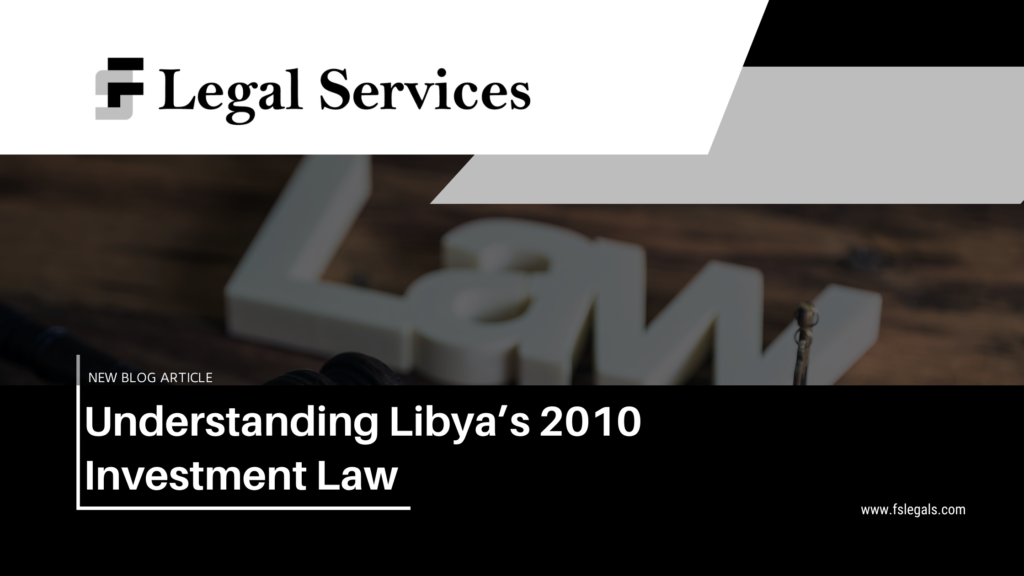Libya’s Banking Sector: Challenges in Credit and Foreign Exchange Access Relevant laws governing Banking sector in Libya: Law No. 1 of 2005 on Banks. Circular No. 02/2024 issued by the CBL. Law No. 46 of 2012 on Credit Information. Introduction Libya’s banking sector faces several challenges, particularly in terms of access to credit and foreign exchange. The country’s financial system is primarily regulated by the Central Bank of Libya (CBL), which plays a central role in managing monetary policy, foreign exchange reserves, and credit allocation. Despite the CBL’s efforts to maintain stability, businesses and individuals in Libya encounter significant difficulties in accessing credit and foreign exchange. These constraints have hampered international trade and raised costs for businesses. The Central Bank of Libya’s Control Over Foreign Exchange The Central Bank of Libya (CBL) plays a fundamental role in controlling foreign exchange, with significant implications for businesses, individuals, and the economy at large. The CBL’s mandate, outlined in Article 5 of Law No. 1/2005 on Banks, allows it to manage foreign reserves, maintain monetary stability, and regulate the country’s exchange rate system. However, this control has created challenges in the availability of foreign currency, with a substantial demand for U.S. dollars in particular, often leading to reliance on the black market due to disparities between the official and black-market rates. These constraints have hampered international trade and raised costs for businesses. Allocation of Foreign Exchange The CBL manages foreign exchange reserves and allocates foreign currency to banks and businesses under strict regulatory controls. These controls, meant to ensure financial stability, often involve significant documentation requirements for businesses seeking foreign currency for imports or international transactions. For example, Circular No. 02/2024, based on Law No. 1 of 2005 on Banks, establishes specific procedures that banks and financial institutions must follow when managing foreign exchange operations. These regulations, although necessary to regulate currency flows, frequently result in delays and additional complications for businesses relying on imported goods and services. On February 1, 2024, the CBL’s Banking Supervision and Regulation Department published Circular No. 02/2024, imposing tighter regulatory controls on foreign currency transactions. These new regulations specifically govern the purchase of foreign currency for opening Letters of Credit (LCs), which are required for importing goods and services. Importantly, these controls were preceded by Circular No. 23/2023, where the CBL identified violations concerning the opening of LCs and failures to comply with anti-money laundering (AML) and counter-terrorism financing (CFT) requirements. The CBL has divided the foreign exchange controls into three segments: LCs for commercial purposes, personal use, and general control measures. Banks are now required to conduct more stringent due diligence, verifying the validity of parties requesting LCs and ensuring that the necessary documentation is provided before approval. Additionally, each transaction must comply with set funding limits based on the nature of the goods or services. CBL Exchange Rate Adjustments and Instability In response to economic pressures, the CBL has made several adjustments to the official exchange rate over the years. For instance, in 2020, the Libyan Dinar was devalued to unify the exchange rate and attempt to stabilize the economy. In 2024, the CBL issued Resolution No. 15, imposing a 27% tax on foreign currency exchange rates. However, the removal of this tax by the newly appointed CBL governor on September 30, 2024, was followed by a conflicting decision the day after from the CBL branch in the east of Libya, which retained the 27% tax. Black Market for Foreign Currency Due to restricted access to foreign currency through official channels, Libya has witnessed a flourishing black market for foreign exchange. The black-market rate is typically much higher than the official rate, contributing to inflation and diminishing the purchasing power of ordinary Libyans. Businesses that cannot access foreign currency officially are often forced to buy from the black market, driving up their costs and creating a complex financial planning environment. Obstacles to Credit Access Another major issue in Libya’s banking sector is the limited availability of credit, which has stifled business growth, particularly for small and medium-sized enterprises (SMEs). Libyan banks have become highly risk-averse, often refraining from extending loans due to the political instability and the lack of reliable creditworthiness assessment mechanisms. Additionally, the CBL’s strict foreign exchange policies, particularly those laid out in Circular No. 02/2024, further hinder access to credit. Banks are required to fully fund documentary credits at the time of submission, and businesses seeking credit must provide extensive documentation and adhere to strict limitations based on the nature of the goods or services involved. For example, the maximum value of service-related LCs is set at USD 2 million, while credits for commercial goods are limited to USD 3 million, and industrial goods can be funded up to USD 7 million. Transactions that exceed these limits require approval from the CBL’s Banking and Currency Control Department, further complicating the process. The CBL’s caution in issuing credit stems from the broader economic risks and uncertain environment, which leaves businesses struggling to access the financing they need. Conclusion: Navigating the Regulatory Landscape with FS Legal Services Libya’s banking sector is heavily constrained by structural and regulatory challenges, particularly in the areas of credit access and foreign exchange. The Central Bank of Libya’s control over foreign currency, coupled with the cautious lending environment, presents significant obstacles for businesses attempting to navigate economic uncertainty. At FS Legal Services, we assist clients in understanding and complying with the constantly evolving regulatory environment. Our expertise in Libyan banking laws and close monitoring of fast-paced changes allow us to offer strategic guidance, helping businesses effectively manage their financial transactions, obtain necessary licenses, and navigate foreign exchange regulations. As the Libyan economy continues to face uncertainty, we are committed to helping our clients find solutions that enable them to grow and thrive within these complex frameworks. Schedule a Consultation Reach out to our legal experts for personalized guidance tailored to your specific needs. Book Your Consultation Now!




